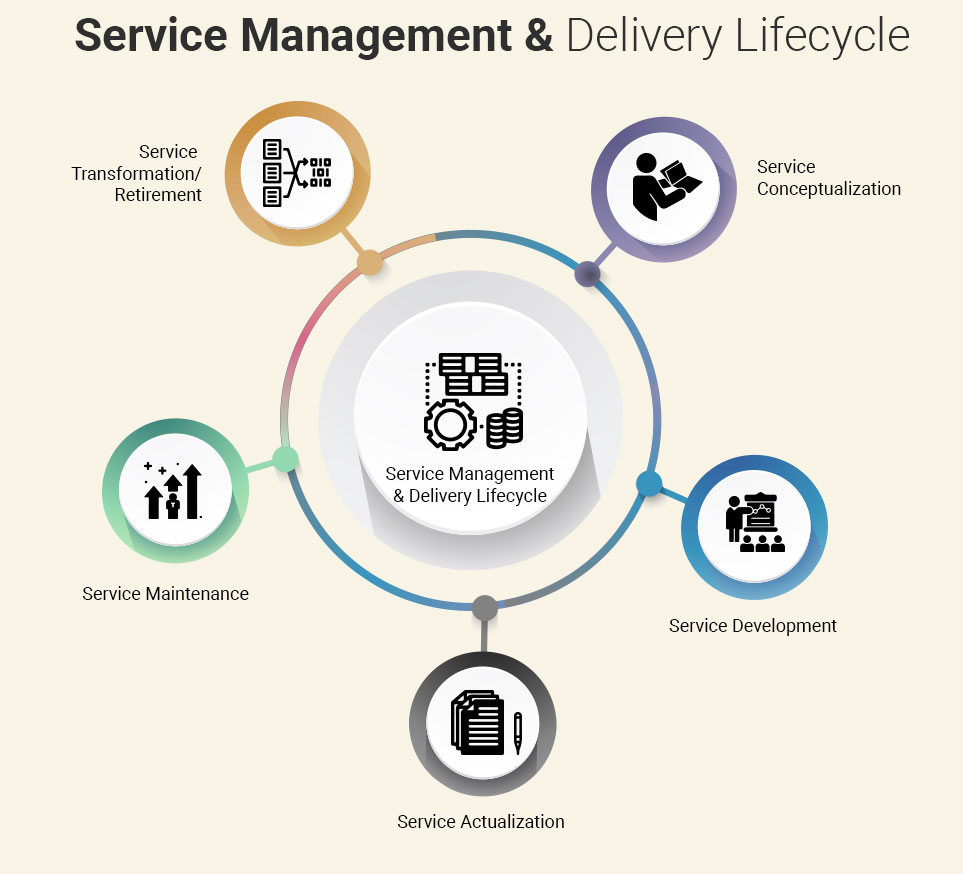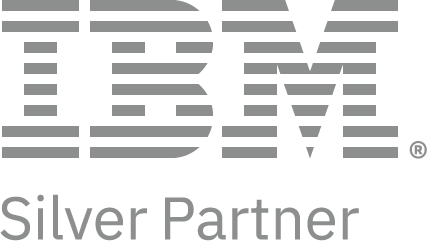Managed Services is the preferred engagement model for long-term IT Services outsourcing strategy. We assist and engage our Customers right from the Service Conceptualization phase until Steady State Support with specific recommendations for Service Development and Implementations considering unique requirements in each environment.

Our Service Management and Delivery Lifecycle
- Service Conceptualization

- Identification of Service Requirements
- Understanding of the Requirements
- Feasibility Analysis
- Visualizing the Service Offering
- Service Development

- Formation of the Service Offering
- Establish SLA and OLA
- Resource Planning
- Client Platform and Process Adoption
- Service Actualization

- Requirements Gathering
- Service Pre-requisites
- Service Implementation
- Feedback and Documentation
- Service Maintenance

- Identifying Improvement Opportunities
- Implementation of Improvements/Recommendations
- Validation and Feedback
- Service Transformation/Retirement

- Retirement Planning
- Service Harvesting
- Retirement and Verification
Benefits of Service Management
Operational Excellence
At Lantrasoft, we ensure customer expectations are consistently met by administering continual improvement processes. Implementation strategies are adapted into people and processes involved thereby achieving sustainable improvements to the customer's key business objectives and to the organization's KPIs.
24/7 Support Services
Our round-the-clock IT Infra Support Services model enables customers who are globally distributed with constant accessibility to the support teams for quicker turnaround. Operating at a very high level of responsiveness guarantees critical business services and infrastructure to be highly available and stable.
Process Maturity
Lantrasoft has the competitive edge in the global markets by offering IT Services to customers with our Information Security Management (ISO/IEC 27001:2013) and Information Technology Service Management (ISO/IEC 20000-1:2011) Standards.
Positive ROI Factors
We help our customers achieve ROI objectives by adding strategic values, improving analytical capabilities and meeting compliance requirements to enable the customer teams focus on core business functions.




